Your guide to life after high school

















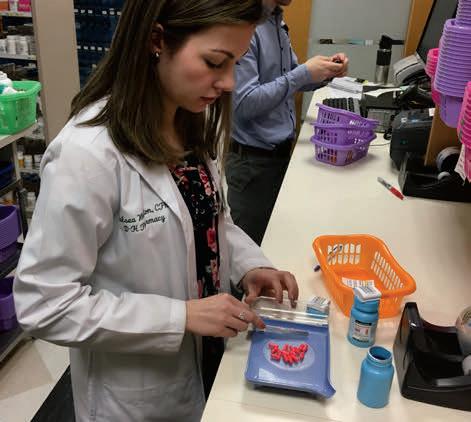
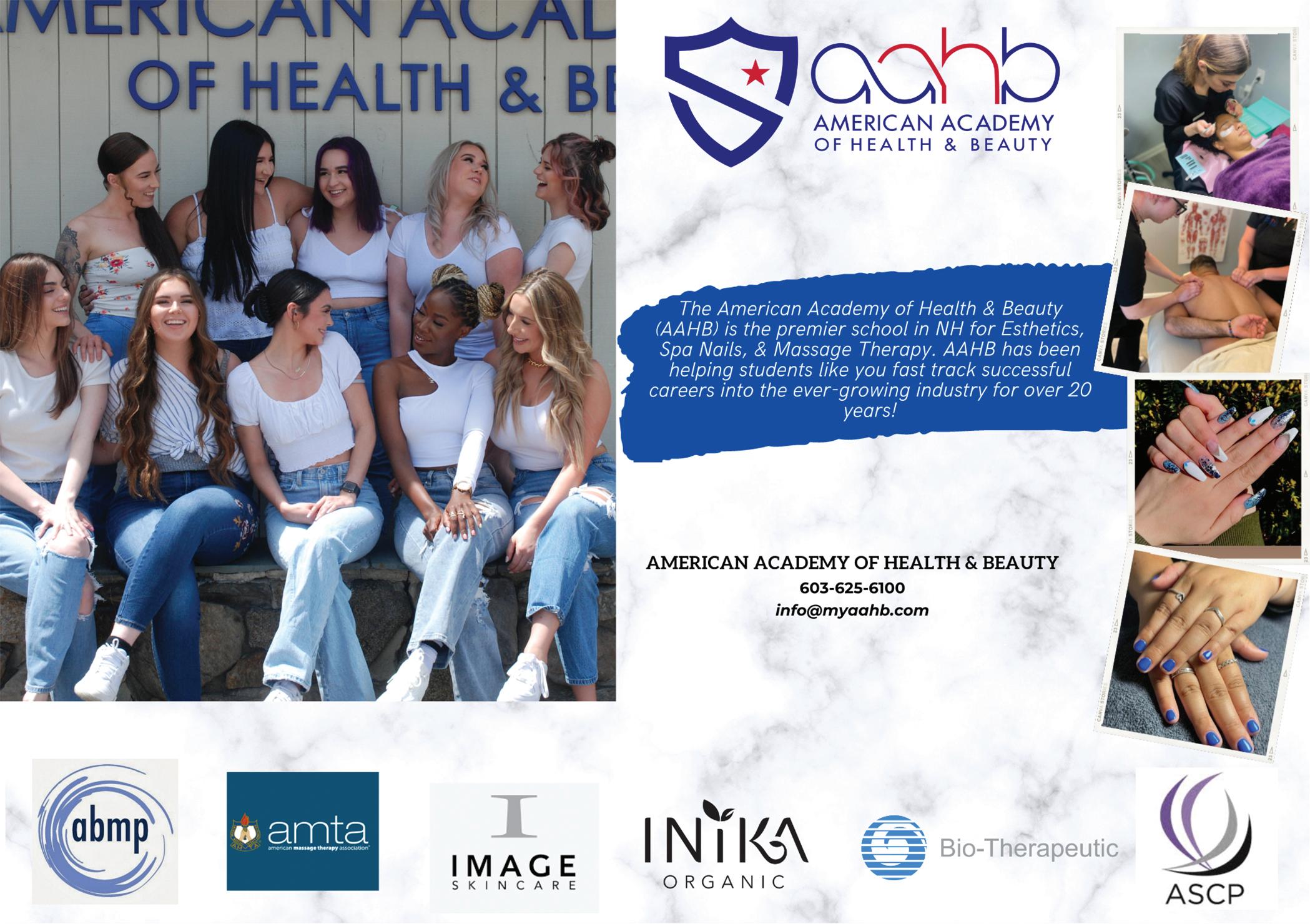

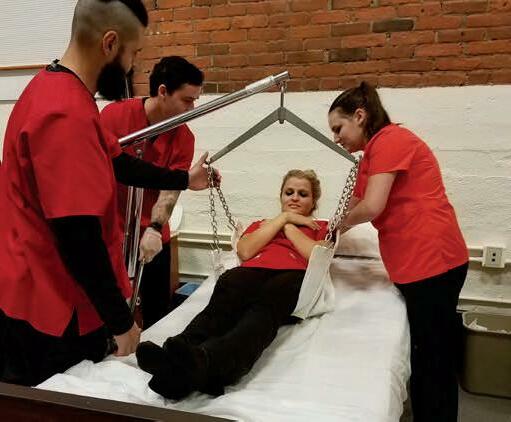

VICE PRESIDENT/PUBLISHER
Ernesto Burden x5117 ernestob@yankeepub.com
EDITOR
Rick Broussard x5119 editor@nhmagazine.com
MANAGING EDITOR
Emily Heidt x5115 eheidt@nhmagazine.com
MANAGING EDITOR, CUSTOM PUBLICATIONS
Robert Cook x5128 robertc@yankeepub.com
CREATIVE SERVICES DIRECTOR
Jodie Hall x5122 jodieh@yankeepub.com
ART DIRECTOR
Nancy Tichanuk x5126 nancyt@yankeepub.com
ADVERTISING & EVENTS SALES DIRECTOR
Jenna Pelech x5154 jennap@yankeepub.com
SALES EXECUTIVE
Connie Audet
OPERATIONS MANAGER
Ren Chase x5114 renc@yankeepub.com
BUSINESS & SALES COORDINATOR
Paula Veale x5110 paulav@yankeepub.com
DIGITAL OPERATIONS & MARKETING MANAGER

Morgen Connor x5149 morgenc@yankeepub.com
250 Commercial Street, Suite 4014 Manchester, NH 03101 (603) 624-1442, fax (603) 624-1310 nhnext.com

© 2022 Yankee Publishing, Inc.
NH Next is published by Yankee Publishing, Inc., 250 Commercial Street, Suite 4014, Manchester, NH 03101, (603) 624-1442. All rights reserved. Reproduction in whole or part without written permission is not allowed. Articles and advertisements in NH Next do not necessarily reflect the opinions of the publisher. We do not assume responsibility for statements made by advertisers or editorial contributors. The acceptance of advertising by NH Next does not constitute an endorsement of the products, services, or information. We do not knowingly present any product or service which is fraudulent or misleading in nature. Please forward any inqui ries or correspondence to 250 Commercial St., Suite 4014, Manchester, NH 03101. For editorial information, please call (603) 624-1442, x5128. To find out how to advertise in the 2023-2024 edition of NH Next, or on the NH Next website, nhnext.com, call (603) 624-1442, x5154.
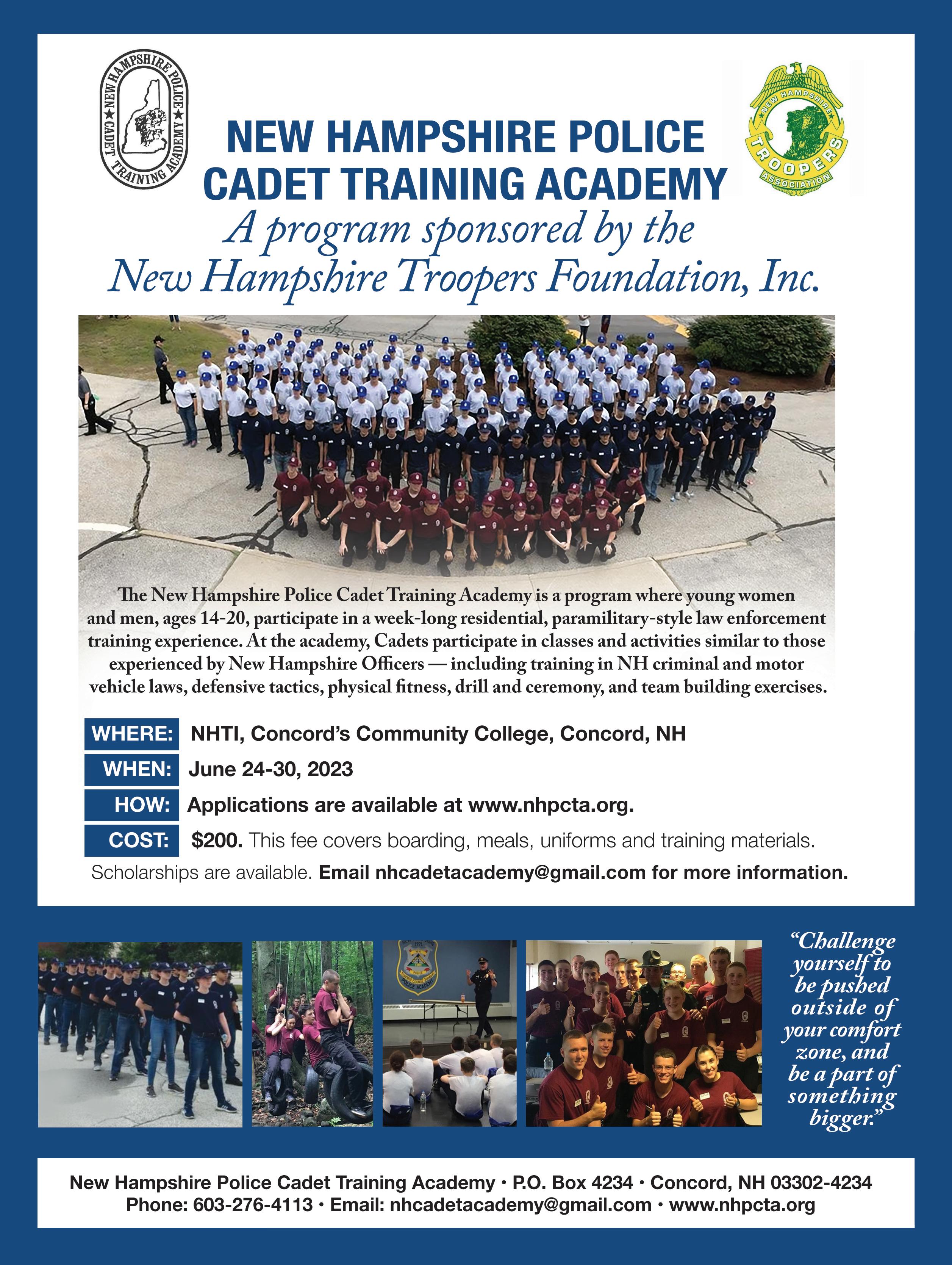
This fall has been one of transition as two of my four children experienced their own NH Next moments. My daughter started col lege as a freshman at Southern New Hampshire University, and my son, two years older, used two years of living frugally at home and attending SNHU to springboard off to an excellent, small engineering school in Indiana. Watching them make these transitions, and in the case of my eldest, spending two days together in the car driving west toward his future (laden with hope, symbolism and bittersweetness), I couldn’t help but reflect on the weight of the choices young people are faced with as they transition from high school to … whatever is next.
It may seem that the very outcome of a life hangs in the balance based on what you decide to do that first year after high school. (I promise, it’s not quite that dire; I spent a few years after school making somewhat strange choices, and then refocused.) Especially with the reporting we read on the magnitude of the student loan crisis,the shifting demands of the economy, the pressure you may feel to conform to someone else’s expectations about the school, the job, the life you should lead. It can seem baffling, daunt ing, infinitely complex.
But there are many great options, many great paths to success. One of the things I’m proud of this magazine for doing is presenting a range of those in a clear, actionable way.
For one of the stories in this year’s magazine (see page 28), I had the opportunity to talk with Second Lieutenant Daniel Leone, an Education Service Officer with the New Hampshire Army National Guard. He has a true passion for help ing young people not only find an option, but to help them find the right option, the one that aligns with their “why.”
He points out, insightfully, that once somebody has figured out their “why” it’s a lot easier to work through all the things it takes to get there, whether it’s a tough math class or a challenging apprenticeship.
He also discusses all the different options that are out there for students, from traditional fouryear programs, to community college, to trade schools and credentialling programs — the Na tional Guard can help soldiers fund all of these, by the way.
And his own story suggests the winding sort of path one may take to get to that why. He came out of college assuming he’d teach history. And through a variety of substitute teaching gigs, he discovered his true vocation as a counselor; one that the NH National Guard’s education benefits helped him achieve as he earned a second mas ter’s degree.
As I mentioned, my own path was a bit wind ing in the beginning, and I hope my own kids (and all of you) find clarity perhaps a bit more quickly than I did. But even more important than that, I hope they understand their options (last year I left a copy of this magazine on both their nightstands, hot off the presses), and that those options truly align with their own “whys.”
ERNESTO BURDEN VICE PRESIDENT/PUBLISHER YANKEE PUBLISHING NEW HAMPSHIRE GROUPCollege offers a pathway to personal, professional and financial growth. Today, a post-secondary education is more important than ever. Research from The Bureau of Labor Statistics tells us bachelor’s degree holders earn more compared to their peers who have completed a high school education.
A college degree also offers more than finan cial security: It enhances self-esteem, leading to greater independence. I am the first in my family to graduate from college, and earning my degree has made a meaningful difference in my life, opening doors and creating experiences that have shaped who I am personally and pro fessionally. As the parent of two children, I am eager to help students across the state of New Hampshire achieve their post-secondary goals and dreams.
The NHHEAF Network’s Center for College Planning (CCP) is New Hampshire’s largest source of free college-planning resources. Our team of expert college counselors are ready to help you realize your college dreams. Call us today at (603) 227-5444, and let us help you “go confidently” as you plan for “the life you have imagined.”
 — CHRISTIANA THORNTON
— CHRISTIANA THORNTON
Christiana Thornton is the president and CEO of the NHHEAF Network, a nonprofit organization that exists to empower students of all ages and backgrounds to discover and achieve their education and career goals.

WWW.NHHEAF.ORG

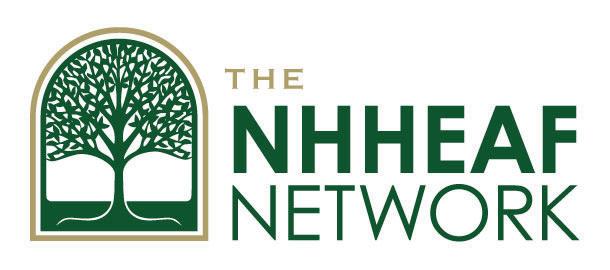
“Education is the most powerful weapon which you can use to change the world.”


Health Careers was founded in 2002 to supply education to licensed nursing assistants (LNA). Our mission is to provide a quality education to our students. By achieving this, our graduates will be confident, competent and compassionate healthcare providers serving the healthcare community proudly. LNA Health Careers’ goal is to educate and prepare future healthcare workers for their licensure exam.
LNA Health Careers changed ownership in 2020, and I took the role of serving as Direc tor of the school. I have expanded the courses offered, along with adding an online feature to the programs. Prior to LNA Health Careers, I founded “My CNA Now” where we developed the first hybrid LNA Program in the state of New Hampshire.

Our programs were designed with quality in mind. Employers trust that graduates from LNA Health Careers are well trained and well prepared to enter the workforce as healthcare professionals. We offer a variety of programs: Licensed Nursing Assistant (LNA), Medication Nursing Assistant (MNA), Phlebotomy, Phar macy Technician and Licensed Practical Nursing (LPN). Our qualified faculty provides a wealth of knowledge academically and clinically in a variety of settings. Our staff provide support every step of the way from pre-admission to graduation.
LNA Health Careers carries the belief that learn ing is enhanced in an environment where there is mutual respect between teacher and learner. LNA Health Careers accepts the responsibility to provide an environment which encourages a learner’s development as a person and as a professional member of the healthcare team.
Becoming a health care worker at LNA Health Careers prepares you for a career in a fastpaced healthcare environment. Learning will be accomplished through theory, hands-on lab practice and clinical application. The programs incorporate classroom learning with simulated clinical activities in our lab and will prepare you for a successful entry into the healthcare workforce. With a high demand in New Hamp shire for healthcare workers, there is no better time to start than today. We hope that you will consider LNA Health Careers to help you meet your education goals and find your place in the healthcare field!
— KERRI DUTTON RN, MSN PRESIDENT, LNA HEALTH CAREERS WWW.LNAHEALTHCAREERS.COMNH community colleges offer an experience beyond what you’ve imagined.


As you begin to consider “what comes next,” it’s important to know that there are many great options to consider, especially ones that you may not have thought about before. Take community college, for example.
For those who “Choose Community” at New Hampshire community colleges, it’s an opportunity to explore interests, gain valuable new skills and take the next step toward your future. All at a fraction of the cost of other college options. Along the way you’ll make real connections with faculty, staff and fellow classmates, and you’ll experience a level of support that exemplifies what it means to be a part of a true community. And with seven colleges and 12 locations across the state, it often feels like a natural extension of your own community.
No matter where you are today — high school student, working your first job, looking for what’s next — NH community colleges are designed to appeal to a wide range of interests and career pathways. With over 200 programs built for today’s jobs market, our grads are in high demand.
Our students can also earn valuable credits in community college that transfer to a four-year college or university. This is a great way to tackle general education requirements and can often provide great insight into your future pursuits.
This is even true for current NH high school students, who can take advantage of programs like “Running Start,” Early College and eStart, where students take courses for college credit, saving time and money, and getting ahead on their future studies.
NH community colleges offer more than just a quality education. Several of our colleges have men’s and women’s athletic teams, a variety of dining options and on-campus or off-campus housing. As our students say, “It’s the real college experience.”
One of the best ways to get a true feel for what we have to offer is to come and see for yourself. All seven NH community colleges offer frequent Open Houses and Express Admission Days, providing future students with an opportunity to explore our campuses, speak with advisors and faculty, and learn about our programs.
If you’re ready to start planning for your future, we encourage you to give NH community colleges a look. Take the first step at ChooseCommunity.com today.
Today, high school graduates have more career path choices than ever before. Technology and innovation have expanded traditional roles in many fields — the electrical trade being one of them. Students are starting to see how an interest or passion, seemingly unrelated to the industry, can lead them to a career in the electrical trade.
The reasons why a graduate might choose a particular career path or field are changing. Previ ously, we saw students entering the electrical trade because they wanted to secure a financially rewarding career without incurring student loans, or because they wanted to follow in the footsteps of a family member, or simply because they were interested in electrical work. While these incentives may still influence an individual’s choice, today’s students pursue a career in the electrical field for other reasons as well.
One such individual, Brian Harlow, our Virtual Design Construction (VDC) Specialist, found that his interest in computers and gaming opened a path to the electrical trade. The VDC title is new to our industry as we continue to incorporate the latest technologies into the business. When Brian graduated from high school, he was unsure of his career path. Despite his interest in computers and gaming, he wasn’t sure he could make a living pursuing this track. He decided to explore certificate courses at a local NH community college, and soon realized his aptitude for computers and gaming could
transfer to Building Information Modeling (BIM). He reached out to Interstate for a Computer Aided Design (CAD) Operator position and his journey began! Ten years later, Brian is proud to have used on-the-job training and self-learning to advance into his current role.
We are seeing more and more stories like Brian’s in the electrical trade. For example, a student who is interested in interior design might use that passion and experience to shift into an electrical detailing, coordinator or engineering support career. We’re even seeing students choosing to become electricians because they are motivated by a passion for green initiatives and want a fulfilling career that will promote electric charging stations, hydro and wind power, along with lighting controls and sensors to reduce electric use.



As a woman in the industry, I am proud to see more women entering the electrical trade. Today, there is more diversity in the workforce and in the industry than ever before. This uptrend in diversity makes me incredibly happy. It’s rewarding to see students gravitating towards a career that aligns with their interests and passions — not their gender. Add to this the increased utilization of technology in the industry and we see an ever-broadening path for individuals to pursue a career in the electrical trade. They realize the opportunities in the electrical field go beyond wires.
— LUIZA MILLS SENIOR VICE PRESIDENT INTERSTATE ELECTRICAL SERVICES WWW.IESC1.COMNew Hampshire community colleges offer far more than you might imagine.


Opportunity. Inspiration. Struggles and success. Office hours and late-night study groups. Game-winning shots. Overjoyed graduation photos. These are the things that make the New Hampshire community college experience so rewarding. That and so much more.
Students who “Choose Community” come to our campuses for a variety of reasons. For some, it’s the next step after high school, while for others it’s a chance to hit the reset button or turbocharge their career plans. But one thing they’re all pleasantly surprised by is the sense of belonging and camaraderie that they discover once they’ve enrolled. Whether that comes from a discussion in one of our small classes, forming a connection with a faculty mentor, or spending time with other students, the community college experience is often a turning point in our students’ lives that sets them up for future success.
Choosing to attend community college makes sense on so many levels. No matter your long-term goals, your time spent here can quickly pay dividends. Earn general education credits that can transfer to a 4-year school at a fraction of the price. Learn new skills that can translate to a promotion or a new job. Graduate with a certificate or degree in a high-demand field, making you a high-demand graduate in the process.
With seven community colleges and 12 locations across the Granite State, a brighter future is closer than you think. Add in flexible schedules and online and in-person courses, and it’s easy to see how the community college experience is built to fit your life, not the other way around. We also offer over 200 degree and certificate programs, a talented and dedicated faculty and staff committed to student success, and generous financial aid opportunities on top of our already affordable tuition.

Discover what more than 21,000 students learn for themselves each year across these popular areas of study:
ARTS, HUMANITIES, COMMUNICATION AND DESIGN
Gain focused skills and a strong foundation for transfer opportunities
BUSINESS
Attain real-world experience, as well as professional and leadership skills
HEALTH SCIENCES AND SERVICES
Study for careers in nursing, an array of direct care roles or healthcare administration

HOSPITALITY AND CULINARY
Learn about the restaurant, resort, recreation and event management professions

Train for in-demand, hands-on and highly skilled professions
SOCIAL, EDUCATIONAL AND BEHAVIORAL SCIENCES
Prepare for careers with huge impact and personal meaning
STEM AND ADVANCED MANUFACTURING
Study for high-tech, in-demand jobs across an array of industries from aerospace to life sciences
I always felt supported and knew I had the tools I needed to succeed.
You’re getting a quality education. Even if you don’t know what you want to do, take a class to challenge yourself. You’ll be glad that you did.
Jackson, Business
They not only provided me with a foundation for continuous learning, but I also found an incredible community of professors who believed in me.
Rochelle, Health Science
The connections that I made will last a lifetime and I’m so appreciative of the support and opportunities that they gave me.
Pursue your dream. What might seem impossible will become possible one day if you fight for it.
Learn more than you thought you were capable of. Experience more than you ever imagined. Become what you’ve always dreamed you could be.
Take the first step at ChooseCommunity.com


One in five New Hampshire hospitals have reported critical staffing shortages, a number that has risen since the onset of the pandemic. During this historic time, public health professionals across the state worked to prevent the spread of disease, and they continue to work to keep the population of New Hampshire as healthy as possible.
Now with the worst years of the pandemic in our rearview mirror, close your eyes and think about how your future can make a difference in your community. Healthcare careers have a vast number of options, ranging from LNA, MNA, Phlebotomy, Pharmacy Technician and Practical Nursing.
A Licensed Nursing Assistant (LNA) helps patients with activities of daily living and other healthcare needs. LNAs can work in hospitals, clinics and long-term care facilities. They may also provide health services to patients who need assistance with daily tasks at home.


You have the ability to grow personally and professionally within this field. Here are a few benefits of becoming a Licensed Nursing Assistant:
Something you will never have to worry about when it comes to becoming an LNA is stability. The 10-year projected growth of this position is 17%, which means there is an increasing need for LNA’s to join the field.
When you’re looking for a job, flexibility can be important depending on your personal situation. Having a work-life balance is important to your mental health — finding a career with flexibility makes that possible.
You have the chance to impact the lives of people based on the care you provide. When you can see the impact you’re having on someone else’s life, you will understand why this job is rewarding.
Becoming licensed as a Nursing Assistant is not expensive in comparison to other programs. Many companies are dedicated to education advance ment for employees through tuition-assistance programs. By taking advantage of these benefits, you can build your skill set and résumé.

While you’re getting experience as an LNA, you’ll have the chance to explore different specializations and certifications as well as that job choices they offer.
The job market for healthcare is not slowing down anytime soon. This position is growing faster than any other job in the U.S., with an average growth of 18% by 2024. Now is the time to jump on this career path.

As an LNA, you will have the opportunity to travel throughout your career. Your employment opportunities range from singlelocation positions to contract positions based on need. You’ll have the opportunity to work in your area of expertise and explore new places with the flexibility to travel, practice and experience new things personally as well as professionally.





As an LNA, you work side by side with a Registered Nurse and people from other medical fields every day. This could inspire you to explore opportunities for further education in healthcare.
These are just some of the reasons becoming an LNA can change your life in an incredible way. You will have the oppor tunity to make an impact, not just in your own life but in the lives of others, too. The ability to see how your efforts affect other people can be indescribably rewarding.
Thinking about an LNA career in New Hampshire? To work as an LNA, it is necessary to attend a training program and successfully pass an exam administered by a government regulatory agency. LNA Health Careers offers programs to do just that.
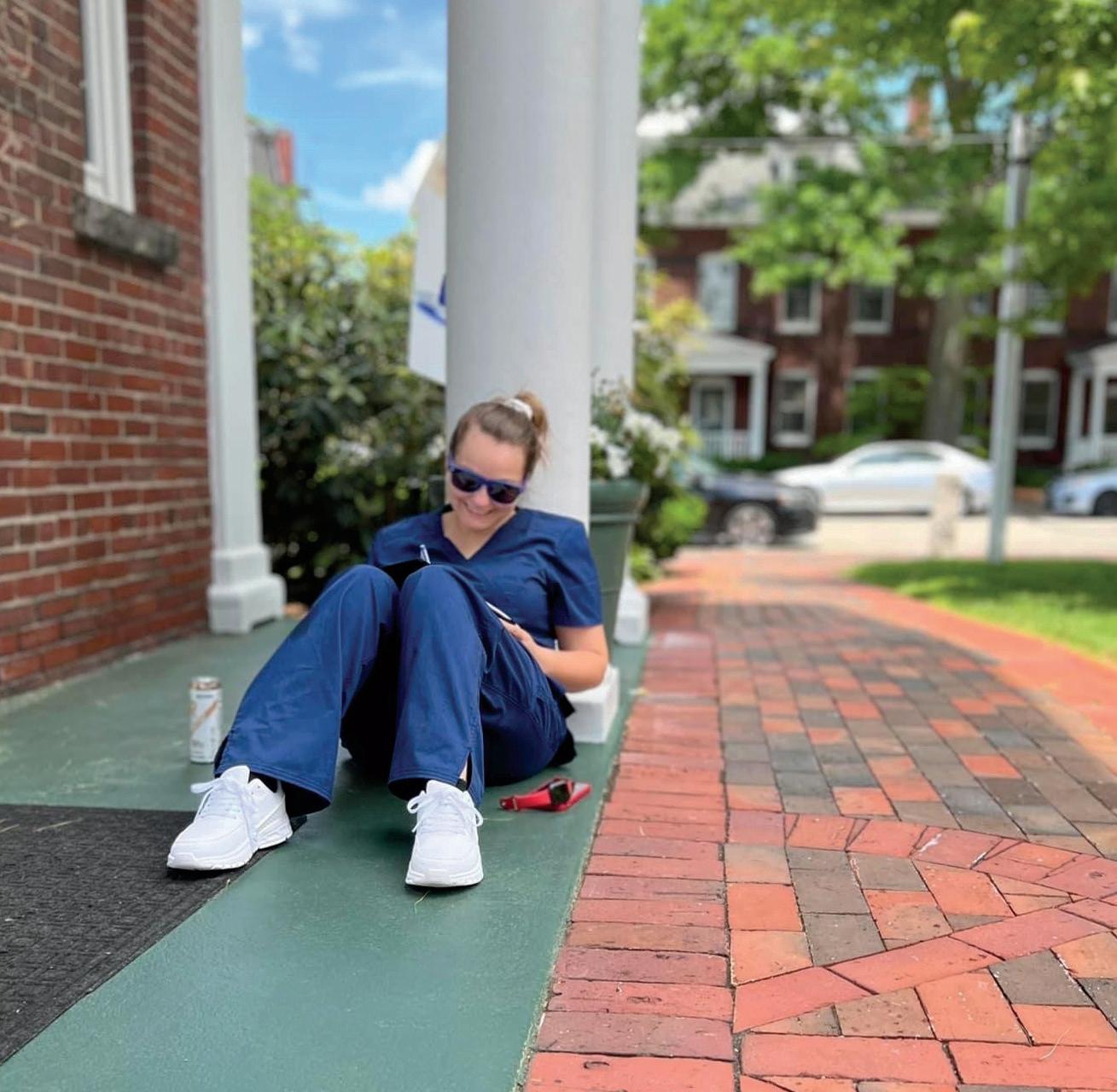
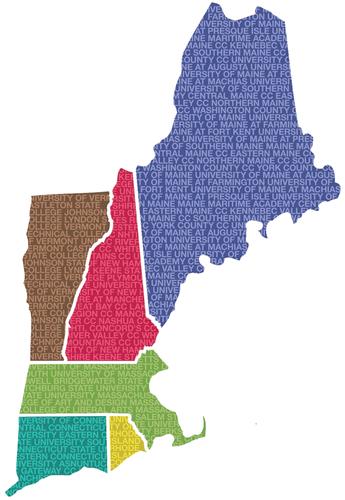
Connect with us on social @LNAhealthcareers or via email at info@LNAHC.com.


Since 1976 the tutors at Beaven & Associates have developed material to help students prepare for
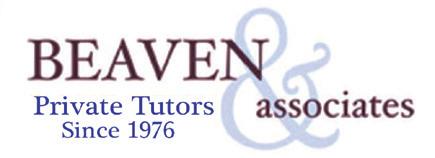
Our tried and proven workbooks are now available to the public.
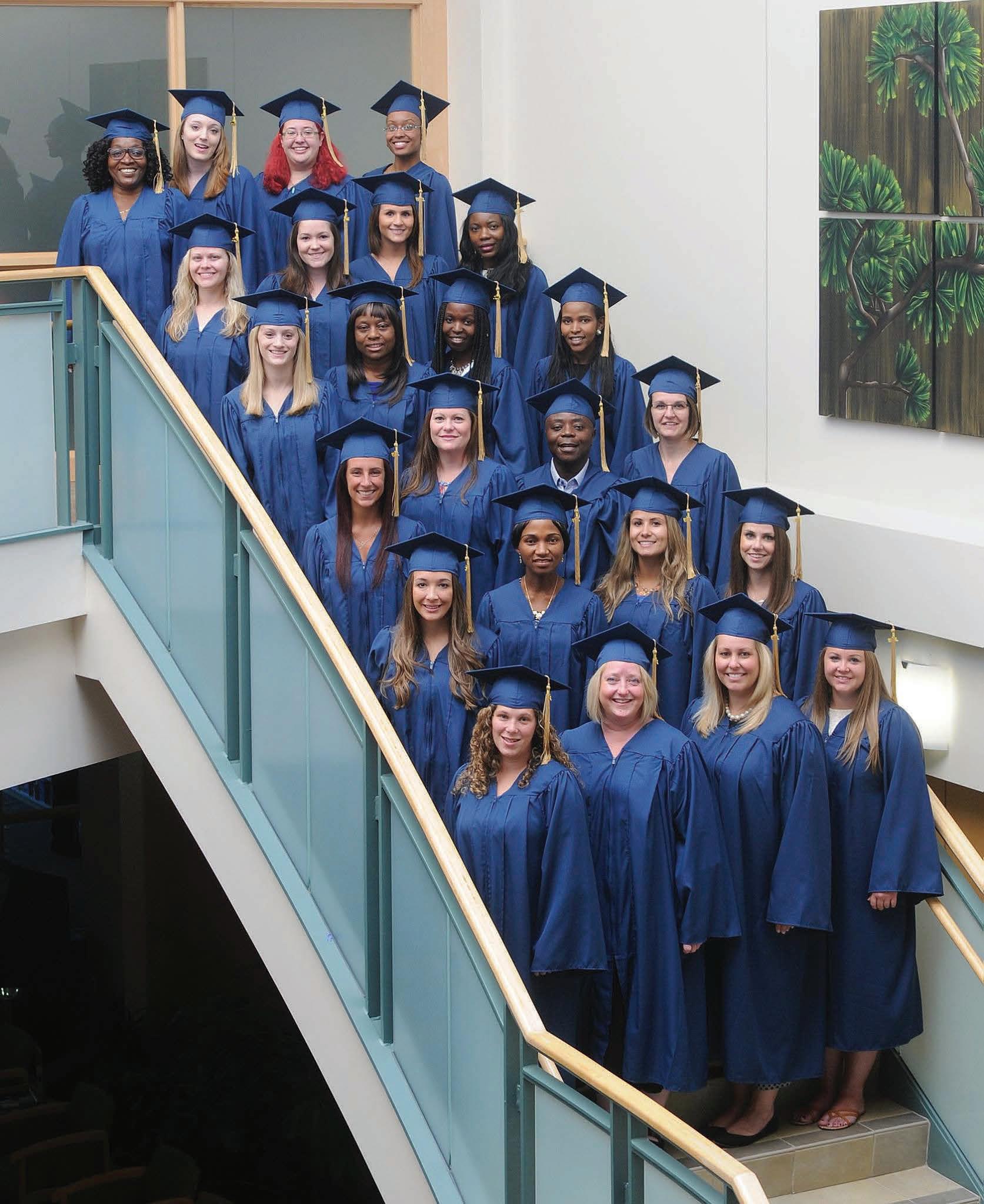



Spend time reflecting on what you enjoy: personally, academically and profession ally. How might those interests translate into a career?
Aptitude assessments can help you identify your natural strengths and what careers might bring you success. Book a free Career and Aptitude Exploration appointment with the New Hampshire Higher Education As sistance Foundation (NHHEAF) Network to conduct your assessment. Trained profes sionals will guide you through your results, explain what they mean and help plan your next step on your path to success.
There are hundreds of jobs in countless differ ent industries. Using your aptitude assessment results, look into jobs and industries that fit your personality, values and motivations. Try to answer some of these questions:
What kind of lifestyle do people in these careers have? What hours do they work? What is their primary motivation: humanitar ian, research, salary, notoriety? What is their work environment like? Is it independent or more team oriented? Is there travel involved? Is it fast paced or more at your own speed?
Also consider if this field is growing — will there be demand for this career when I gradu ate? These are great questions to think about while researching the best career for you. It’s not just about the work itself!
Taking the time to learn about a career can both inspire you and let you know if you are on the right path. Getting to know profes sionals in your desired field allows you to ask questions and identify if the career is a good fit. You can also gain skills like punctuality, probem-solving and effective communication in the workplace.
What do you want to be in the future? Whether or not you have a career in mind, high school is the perfect time to research and explore.
What will you need to do to achieve your ca reer goals? Many industries require some type of job training or higher education. Identify what your chosen career requires of entry-level workers and use these prerequisites to create a plan. Consider your long-term goals and what education you may need for future growth and advancement, too. Knowing what education you will need to achieve your career goals can help ensure you choose a program that is worth your time and money.
Each student has their own path, and there is more than one way to achieve a goal. If you decide on a career in high school and change your mind later, that is okay! If you find your self reevaluating your path, return to the first step of exploring your interests and strengths with questions like “What am I good at?” and “What do I enjoy?”
CHOOSING A COLLEGE MAJOR
If your chosen career requires a college degree, the next step is to determine which major will provide the education and train ing you need to be successful. Speak with professors, current students and alumni of the colleges you are interested in to determine if the majors offered will lead to the profes sional opportunities you desire.
• Check out college websites and course catalogs.
• Explore and compare opportunities outside the classroom, like internships and research.
WHAT IS YOUR LEARNING STYLE?
Determine whether a major taught entirely in a classroom setting or a more hands-on approach is appropriate for you and your career goals.
For many jobs, an associate or bachelor’s de gree is sufficient. But some professions require additional training. Remember, you don’t have to know what you want to major in to apply to college. But, at most four-year colleges and universities, students must choose their major by the end of sophomore year. Nevertheless, there’s no need to feel stuck with your first choice if your career goals evolve.
There are over 4,000 colleges and uni versities in the U.S. There will be more than one “best fit” school for every student. Start with the things you know you want in a college and build your list using this criteria.
• SIZE
Small (<5,000 students)
Medium (5,000 – 15,000 students)
Large (>15,000 students)
Consider not only the overall size of the campus but class size as well. There are advantages and disadvantages to large and small schools, but knowing what you need will help make the best decision.
Are you looking for diversity? All male/ female? What percentage of students are from in state or out of state? Do students stay on campus on the week ends or commute home? What are the interests of the students?
• LOCATION
Think about how access to a city could impact your experience. Is the campus urban, rural or somewhere in between with access to both? How far is the nearest internship, clinical affiliation or volunteer site for your major?
•
Will you be able to conduct research,
Try a free college search engine. Big Future (bigfuture.org) lets you search for colleges by program or degree, location, size and more.
participate in internships or co-ops? Will you take classes in your major in your first year? Will you be able to present your work at conferences? Are there hands-on opportunities for learning?
• ACADEMIC SUPPORT
Is there an office of Accessibility or Dis ability Services? What about an Office of Academic Services? What do they provide (study skills workshops/assistance, writing center, tutors)? And be sure to ask if there is a Career Services office to assist with résumés, interviews, etc.
• COST
Have a discussion with your family about a realistic budget for college — before
Whether you make plans to visit our beautiful campus in person or prefer to take part in one of our virtual visitation experiences, we’re ready for you! Our Admissions Team will work with you to answer all your questions and get you ready to welcome you HOME. We can’t wait for you to join our tight-knit community, where a supportive network of faculty and peers accept you as you are and see you for who you can be. Feel empowered, break new ground. We’ve got you. Find your people, find yourself - here at Franklin Pierce.

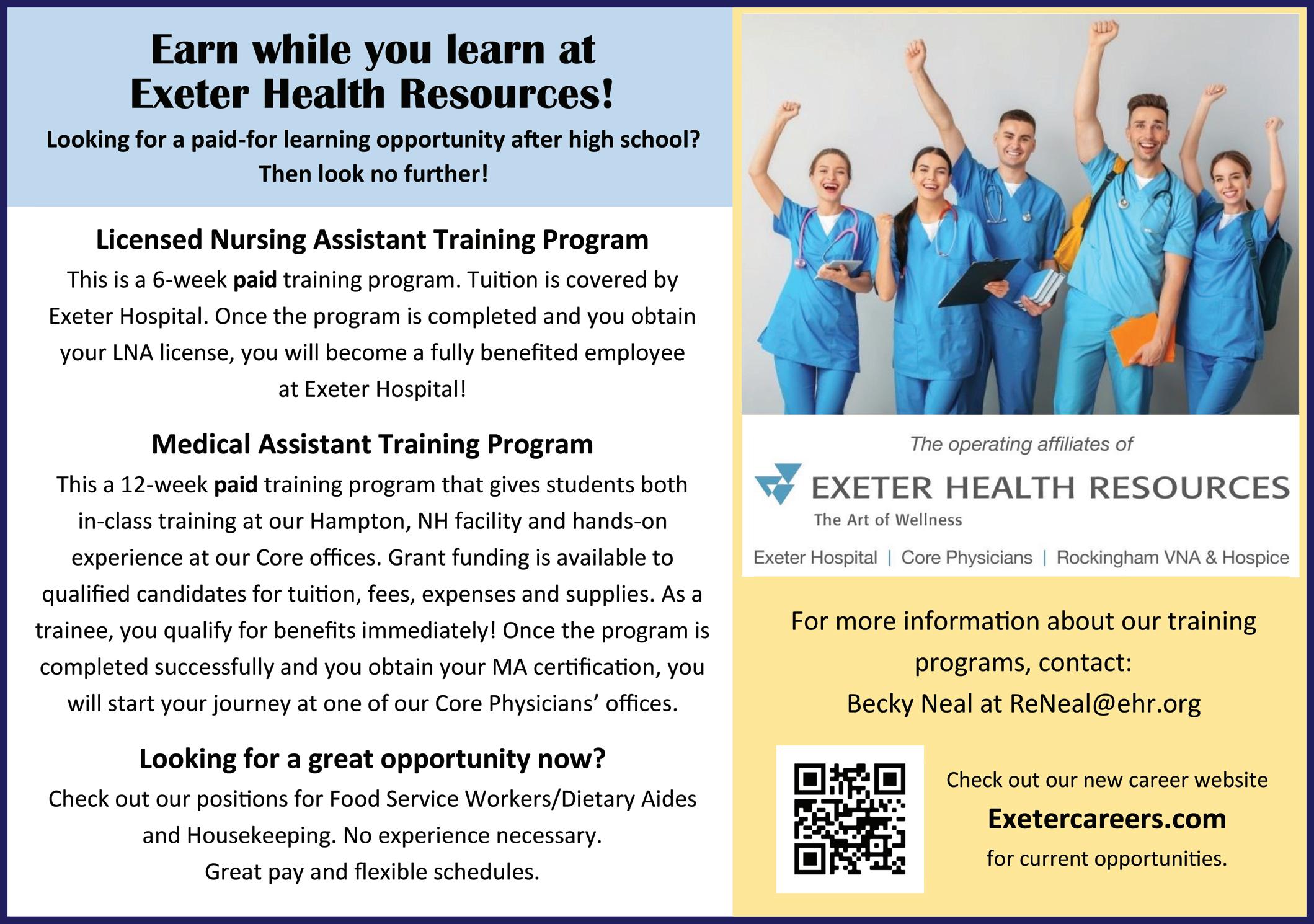

you are accepted and focused on a particular school. Public colleges receive some funding from the state while private college do not. Private colleges typically have a higher price tag, but don’t let that number keep you from applying, as there may be more grants and scholarships to help meet the cost.
Does the school offer programs that support your career goals? Check the course catalog to see what kinds of courses you will be taking. What percentage of students return after their fresh man year? And what percentage of graduates are employed in their chosen field or attending graduate school?
Does the school offer activities that you are interested in? Being involved will help you make friends and feel comfortable. What are the most popular clubs, activities and events? Check out the school’s social media — this can give you an idea of what the campus is like.
When you begin research on sites like bigfuture.org and petersons.org, or speak to family and friends, your list can grow quickly. It is typical to begin the process of applying to college with a very large list of schools. Visiting campuses, either virtually or in person, gives students the opportunity to narrow their list and find schools that fit them socially, professionally and academically.
If you can’t visit all your campuses before you apply, no problem! Many colleges offer Admitted Student Days in the spring, so admitted students can visit before making their final decision.
Book an Exploring Options Appointment at NHHEAF to get one-on-one counseling to help build your college list.
Attend an Early College Planning Presentation (available in person or recorded webinar)
Schedule a Career Assessment Appointment and complete your Aptitude Assessment
Questions to ask student tour guides and other current students:
What do you feel makes this school the right fit for you? What classes are you taking? How much time do you spend on assignments? What are the most popular activities and classes? How accessible are professors?
Is extra help available? What do you do for fun, and how easy is it to get around campus?
One of the most important parts of the college search process is getting to know the schools.
• COLLEGE
Check local high schools, the NEACAC website (neacac. org) and with your school counselor for college fairs close to you. Look at the list of schools attending and make a plan to visit with those you are interested in. Have a list of questions you would like to ask.
Get to know someone from the college and quite possibly the admissions rep who will be evaluating your application. Use this time to learn more about the school, and be sure to fill out the interest card they offer you — they will use it to keep track of the contact they make with you and to remember you when your application comes in.
• VISIT CAMPUS
Call ahead to schedule your visit. Be prepared to ask questions and chat with the student tour guide. It’s hard to remember after a few college visits which one had the really great dining hall and which offered the great minor you might be interested in, so take notes.
When you make your list of colleges to apply to, we recommend that you select a diverse group of schools. It’s important that you only include schools that you’d consider attending if you were accepted. Applying to colleges just to fill your list is not only a waste of your time, but you could also take away a spot from a student who really wants to go there!
• BUILD YOUR LIST INTENTIONALLY For each school you add, have at least 2-3 specific rea sons why it made the list.
• HAVE A BALANCED APPROACH
Include schools in all three categories: Safety, Target and Reach.
• CONSIDER THE TYPE OF FINANCIAL AID OFFERED Do they only offer need-based financial aid? Do they offer both need-based and merit-based financial aid?
Courtesy of NHHEAF Network’s “Admissions Insider 2022” — available at www.nhheaf.org
RISING SENIOR: SUMMER
SENIOR YEAR: FALL
Attend virtual or in-person college tours and information sessions
Begin finalizing your college list
Start your Common App and college essay
Retake SAT/ACT
Attend any final college fairs or tours
Narrow down list of colleges Finish college essay
Complete and submit early applications
Apply for financial aid (FAFSA and CSS Profile, if needed)
Attend CCP Essay Prep Session Common App
Attend College Summer Session Webinar Schedule Common App Assistance Appointment
Attend Financial Aid Night Presentation
Complete college applications at I Am College Bound event, if available at your school Schedule a FAFSA Filing Appointment
SENIOR YEAR: WINTER
SENIOR YEAR: SPRING
Apply to regular decision schools Research and apply for local and national scholarships
Review college acceptance letters and financial aid offers
Attend admitted students’ days
By May 1st (Decision Day), pay deposit to chosen school Celebrate I Decided Day!
Schedule a Financial Aid Conversation Appointment Schedule a FAFSA Filing Appointment
Schedule a FAFSA Filing Appointment if needed
Schedule a Reviewing Financial Aid Offer Letters Appointment
RISING COLLEGE STUDENT: SUMMER
Attend orientation Research and choose private loans or PLUS loans
Complete entrance counseling and sign
Master Promissory Note for federal student loans
Attend I Am College Bound: I Rise Webinar Schedule an appointment with EDvestinU to discuss NH Private Loan Program
This form of aid is free money for college. Gift aid does not have to be paid back after you graduate. It can be awarded on the basis of merit or need.
Merit-Based Gift Aid is awarded to students in the form of scholarships based on a certain talent (performing arts, athletics), academic accolade (GPA, standardized test scores), being part of a certain group (student from a particular city, nursing major), etc. Typically, if the college offers a scholarship, it is renewable for future years as long as the student still meets the specified criteria the school sets forth (maintains a certain GPA or is an active member of the sport for which it was awarded, for example).
Need-Based Gift Aid is awarded to students based on their family’s financial circumstances as documented on the Free Application for Federal Student Aid (FAFSA) and other financial aid paper work. This aid is also called a grant and must be reapplied for each year you will be in college.
Your State Groups and Organizations Individuals
The Federal Government State Agencies
This form of finan cial aid requires repayment or is earned through work.
Work-study allows you to earn money for college through an on-campus job. During the school year, you can work part-time through a Federal Work Study program (FWS) to earn money that can either be received in a paycheck or put towards outstanding school fees like tuition. Only students who demonstrate financial need will receive work-study.
Federal student loans offer you the opportunity to borrow money in your own name to help pay for college. Every student who files a FAFSA is eligible to receive student loan money from the federal government. However, your financial need will determine if these loans will or will not accumulate interest while you are in school.
Private student loans allow you to supplement other financial aid. If a student receives any need-based financial aid from the federal government, state government or the school itself, the total of that aid plus any private scholarships must fit within the student’s eligibility for need-based financial aid.

The Federal Government
The Federal Government
Private Loan Companies Credit Unions and Banks
College is one of the biggest investments you will make in your lifetime, so it’s important to consider the impact of your choices. E ach year, there are billions of dollars offered to students to help pay for college. However, it’s crucial to understand what’s available and what must be done to receive this aid. Paying for college can be one of the toughest parts of earning your d egree — but it doesn’t have to be.

1
. Beginning your college education at one of the seven Community College System of New Hampshire (CCSNH) schools can significantly reduce college costs. Or perhaps you can get a head start on your college coursework while you are still in high school; talk with your school counselor about taking Running Start, Early College and/or eStart courses.
NH Transfer: Check out nhtransfer.org for information about transferring college credits earned in the Community College System of New Hampshire (CCSNH) to participating colleges and universities in New Hampshire. Use the database to determine if and how your credits will transfer.
2
. Take advantage of the discounted out-of-state tuition if your intended major is not offered at one of our state colleges or universities.
Tuition Break For New Hampshire Residents: The New England Board of Higher Education’s (NEBHE) Tuition Break program — the New England Regional Student Program (RSP) — provides a discount on out-of-state tuition to New Hampshire residents when they enroll in approved degree programs at specific state colleges and universities in Connecticut, Maine, Massachusetts, Rhode Island and Vermont.
New Hampshire residents are eligible for these degree programs if they are not offered by any of the New Hampshire state colleges or universities. Visit nebhe.org/tuitionbreak for more information.
. Take Advanced Placement (AP) courses in high school and take the AP exam. Check with each college to determine their requirement(s). 4. Take dual enrollment courses where you can earn both high school and college credit at the same time. Check with your school counselor for available options.
Rent or borrow textbooks from the library.
. Use an existing health insurance plan instead of paying for the college’s plan.
. Utilize student discounts offered by local merchants, banks, etc. Also consider leaving your car at home. Parking permits, gas and car maintenance quickly add up. Need to get somewhere? Explore campus and public transportation options.
Courtesy of NHHEAF Network’s “Financial Aid Insider” — available at www.nhheaf.org
Many students make the mistake of using a college’s sticker price — the price published on their website — as a determining factor in evaluating potential colleges. The truth is, most students will pay less than the sticker price because of financial aid. Col leges initially considered to be out of reach may be more affordable than you think. Instead of focusing on sticker price, concentrate on the actual price you will pay after subtracting any scholarships or grants you might receive. This is called the net price.

Net price calculators are available on each college or university’s website and allow you to enter information about you and your family to get a personalized estimate of your net cost to attend the institution. Each college’s estimate is specific to you because it is based on your personal circumstances and the college’s financial aid policies. Net price calculators offer a more informed method of deciding which colleges may be the most affordable for you. Remember that these are estimates — the actual price you pay may be higher or lower than the college’s net price calculator indicates.
• Use net price calculators before finalizing your college list if cost will be a factor in your decision.
• Use these calculators strategically. See how your GPA and/or test scores could help you receive merit awards at your chosen college(s).
• Ask a school how accurate its calculator is — some schools offer merit aid that is not accounted for in their net price calculator (but would significantly reduce your cost).
• Note the year for which costs are being calculated; some schools may not have updated their cost of attendance to reflect current costs.
It is estimated that $7.4 billion in scholarships are available each year. Remember, every dollar you earn through scholarships is a dollar you do not have to borrow! Please make sure you are reporting all private scholarships you have received to your institution! Every school treats private scholarships differently, so need-based aid may be impacted.
These scholarships often have local and regional residency requirements making a student’s “pool of competition” smaller and chances of
These scholarships are available to students from all over the country, making a student’s “pool of competition” very large.
FASTWEB.COM is a free matching service for schol arships, with a database of over $3 billion in national scholarships.
COLLEGEBOARD.ORG is a national scholarship search engine to help you find scholarships and other financial aid from more than 2,200 programs, totaling nearly $6 billion.

SCHOLARSHIPS.COM is a database of over 3.5 million
nhheaf_ccp
While financial aid can help cover some of the cost of college, there is usually a gap between what is offered and the total cost of your education. Families have options to meet the balance, and many choose to use a combination of funding types to do so. Research and understand the options fully before committing to a payment plan or loan program.
Tuition Payment Plans. Many colleges offer tuition payment plans to help limit the need for borrowing by allowing families to make no-interest payments over 8-12 months. Each school is different in the terms they offer. There may be a small enrollment fee. Contact the financial aid office at your college for more information.
Federal Direct PLUS (Parent Loan for Undergraduate Students) Loan. The Federal Direct PLUS Loan is a government loan for parents. While parents can ask their student to help with payments, ultimately the parent is responsible for repayment of this loan. There is a fixed interest rate as well as a loan origination fee. The PLUS loan has a typical repayment term of 10 years, but options are avail able to defer payments while the student is enrolled at least half-time. A parent must complete a credit pre-approval process, and the annual maximum he or she can borrow is determined by the cost of education less any other aid received. Visit studentaid.ed.gov/ plus-app for more information.
Private Student Loan. Private student loans are available through lenders such as banks and financial organizations. These loans are usually in the student’s name with a credit-worthy co-signer. Payments are often deferred while you are in school. The NHHEAF Network has our own private loan program offering discounted rates and exceptional service to NH fami lies. Visit edvestinu.com to learn more!
Many students do not have the necessary credit history, earnings or other criteria to qualify for a private student loan without a co-signer. Co-signers agree to take responsibility for loan payments in the event a borrower does not meet their obligation. Lenders have particular criteria co-signers must meet regarding earnings, credit score, credit history, etc. Each lender could have different criteria, so it’s important for you and your co-signer to compare student loan options before committing.


Fees. Are there origination or repayment fees?
Interest Rate. Is the rate fixed or variable? If variable, how high can it go?
Repayment Options. When does repayment begin? Are in-school payments required?
Co-signer. How is the co-signer evaluated (credit score, credit history, debt-to-income ratio)? Can they be released after a certain number of payments?
Repayment Benefits. Are there interest rate reductions for autopay or having an existing account? Are deferment options available?
Forgiveness. Is the loan forgivable in the case of death or disability?
Courtesy of NHHEAF Network’s “Financial Aid Insider” — available at www.nhheaf.org
At UNH Manchester, affordability is our priority.

Affordability and accessibility built into our mission, offering scholarships, grants and financial aid initiatives like the tuition-free Granite Guarantee to help make college possible for students. Here, you’ll earn your UNH degree surrounded by businesses who hire our graduates—which is why more than 89% of UNH Manchester alumni are employed or in further education within six months of graduation.
Business, B.A.
• Accounting Business Administration, MBA* Public Service and Nonprofit Leadership, B.S.
Analytics and Data Science, B.S. Computer Information Systems, B.S. Computer Science, B.A. Cybersecurity Engineering, M.S.** Data Science, Certificate* Engineering Technology
• Electrical Engineering Technology, B.S.
• Mechanical Engineering Technology, B.S. Information Technology, M.S.**
Education is offered as a minor and/or an accelerated master’s program in tandem with an undergraduate major in any field. English Teaching, B.A. Elementary Education, M.Ed. Secondary Education, M.A.T. and M.Ed.**
ASL/English Interpreting, B.S. Communication Arts, B.A.
• Advertising and Public Relations
• Cinema and Media Arts
• Digital Media
• Human Relations English Studies
• Literary Studies, B.A.
• Professional and Technical Communications, B.A. Humanities, B.A.
Biological Sciences, B.A. Biotechnology, B.S. Biotechnology: Industrial and Biomedical Sciences, M.S.**
Health Professions, Continuing Education Program Neuropsychology, B.S. Psychology, B.A. Public Health, M.P.H. and Certificate Social Work, M.S.W.*
Cybersecurity Policy and Risk Management, M.S.* Global Conflict and Human Security, M.S.* Homeland Security, B.S. National Security Intelligence Analysis, M.S.*
* Available online
** Accelerated master’s programs, which allow you to earn a bachelor’s and master’s degree in as few as five years
One brother had a demanding sports scholarship that required an almost exclusive focus on athletics and still only covered 75% of the tuition bill. Another brother’s costly pre-med track was rapidly piling up debt.
Thurston wasn’t happy with either of these options.
“I began looking into scholarships,” he said. “But there wasn’t enough there. So I started looking into military service.”
That investigation, and a conversation with a recruiter in a Wal-Mart parking lot, led him to where he is today: with 23 years of military service, currently serving as a New Hampshire Army National Guard state retention NCO, eligible for retirement from active duty in a year and half, and getting ready to start a second career in pharmaceutical sales. He will get a monthly stipend of retirement money, as well as health care coverage for himself and his family for the rest of his life. His wife is taking advantage of a newly passed New Hampshire law (Senate Bill 360) that allows spouses to use the service member’s education benefit. She is studying for a degree as well. And his kids will all have the benefit of one year of college paid for by the GI Bil. (After serving locally in the New Hampshire Army National Guard while he was in college, Thurston served overseas in Iraq.)
Thurston had a strong idea of what he wanted to study — he had a passion for math and science cultivated in AP classes in high school — and he had an idea of where he wanted to go and how he wanted to arrive there (debt free).
The National Guard helped him achieve that vision.
Not everyone is as sure of what they want in their late teens as Thurston was, though. And that’s where he, and Second Lieutenant Daniel Leone, an Education Service Officer with the Guard, say that the Guard shines.
Leone, a former high school counselor, explained that he sees his mission with the soldiers he now works with as helping them to find their “why.”
Often, he says, he works with young soldiers who are skeptical
they’ll ever take advantage of their education credits, because they didn’t love classroom work or don’t see themselves as academics.
“You might not want to go to college for a particular degree, but there might be something you’re passionate about,” he says. “And those things (lecture halls, etc.) might be a required part of it. But the WHY is the ultimate goal, the ultimate prize.”
Leone applies his years as a high school counselor and therapist, and his passion for listening, to the task of helping young (and not so young) soldiers find their “why” and apply that to charting a course for success in the military and in their lives beyond.
He emphasizes the variety of opportunities for assistance service provides. In addition to a full tuition waver for New Hampshire schools, including universities and community colleges, the service also provides credentialing and certification financial assistance for a range of careers, from personal training and nutrition to indemand trades such as IT and med tech.
Leone also benefited from the Guard’s education programs, which don’t just help those who start school during or after their service. He joined the guard with a master’s degree and carrying the federal student loans he’d had to borrow to achieve it. But “the National Guard will give up to $50K student loan assistance to students who come in with federal loans,” he says.
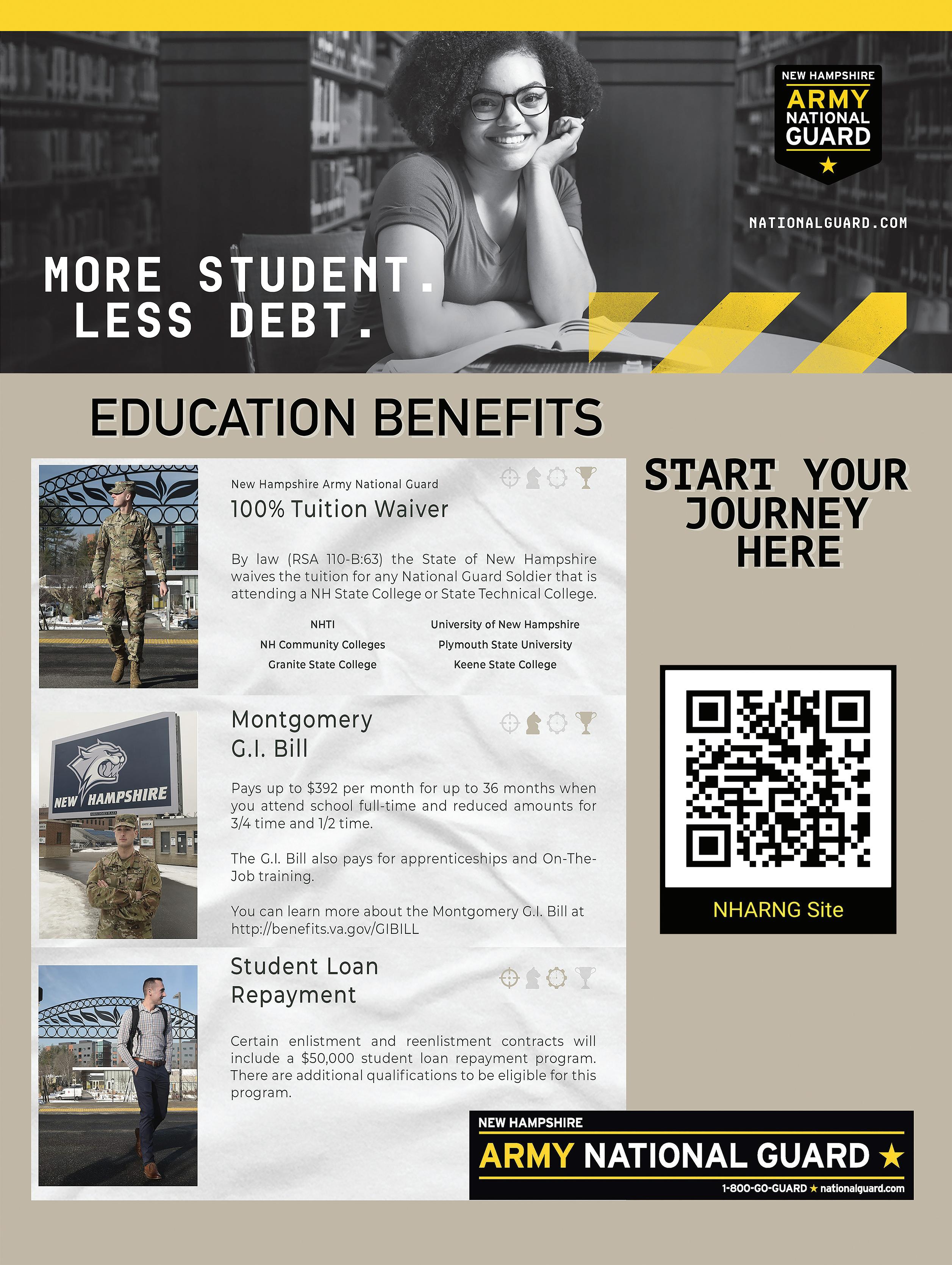
Not only that, but once in the Guard, Leone pursued a second master’s degree, this one paid for by the Guard’s state school tuition program.
“You don’t want overhead,” Leone says. “The less overhead you have, the more freedom you have to make choices.” That includes the choice to”go to school for something you actually care about. Because it’s your time.”
Both Leone and Thurston are driven to share the lessons they’ve learned with the soldiers they serve as they help them plan careers, in the service and beyond.
“My pride of service and dedication to the country has turned into my pride and dedication to the soldiers,” Thurston remarks. “I try to make them better than I am. And I offer the advice of the mistakes I’ve made to make sure they don’t make the same mistakes, and to ensure they can be happy, physically, mentally and emotionally. It means a lot.”
helping to pay
for your education and to also find your “why”When Sergeant First Class Alexander Thurston was a teenager in Gilford, New Hampshire, he watched his older siblings struggle to pay for college.














Choose Community at one of 12 New Hampshire community college locations, for an experience far beyond what you’ve imagined.

